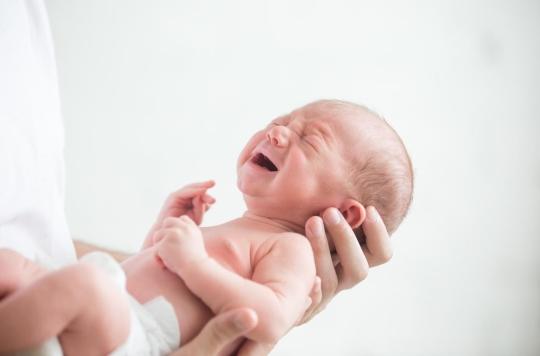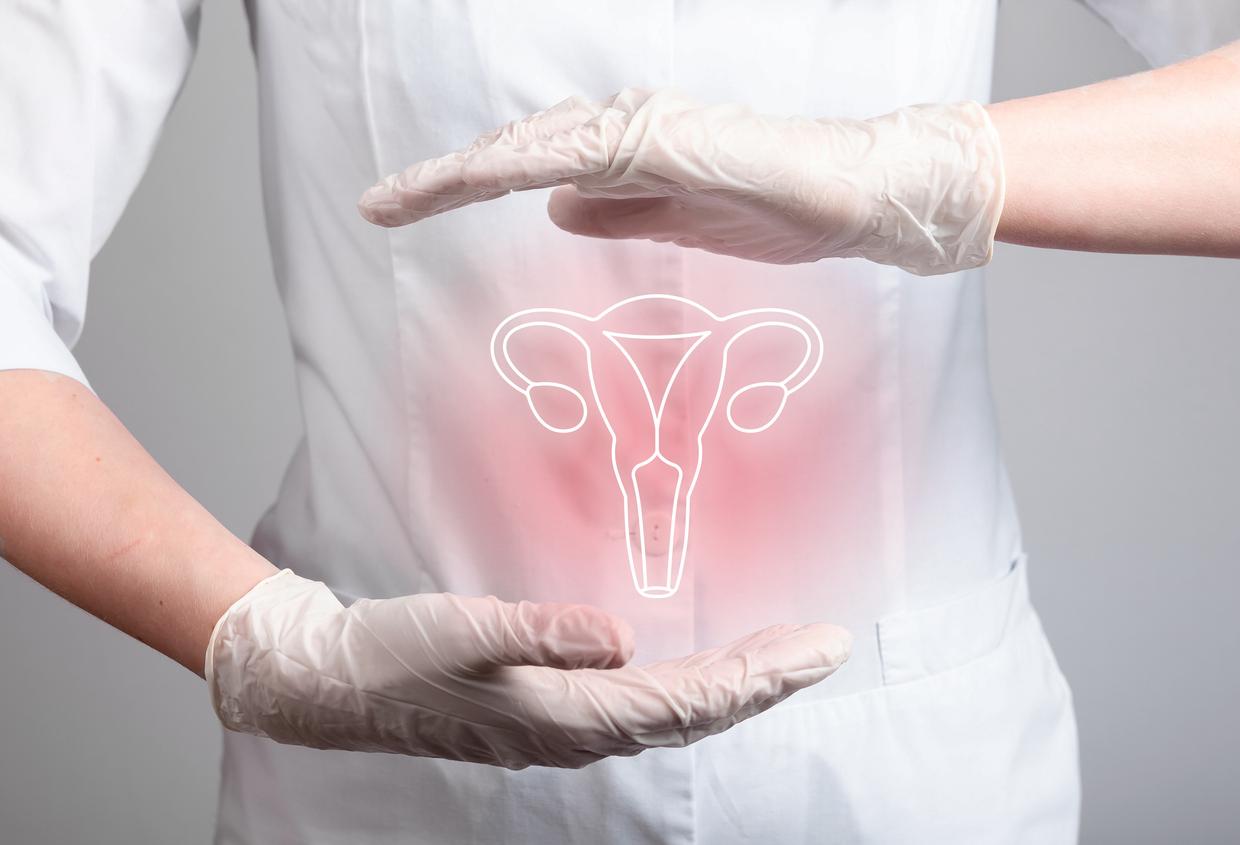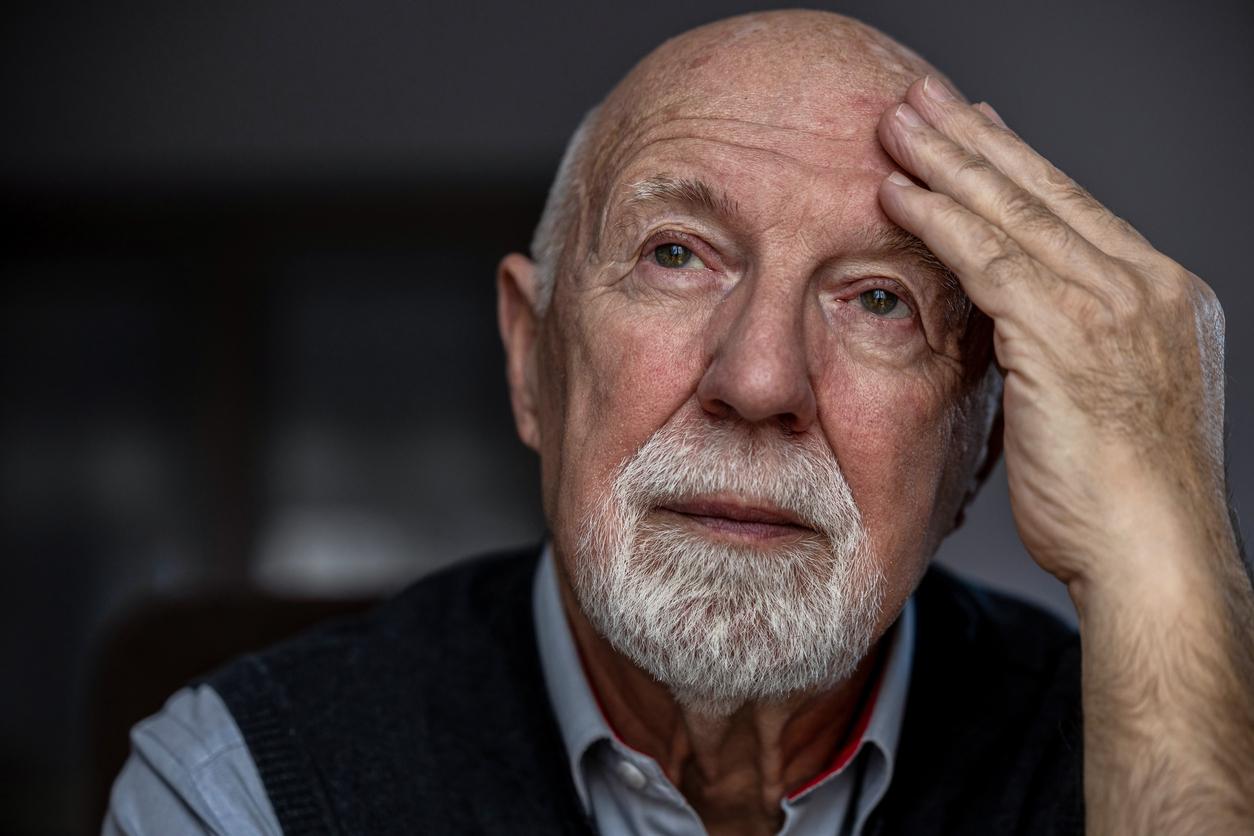From this Monday, January 17, Internet users will be able to discover a prevention campaign against shaken baby syndrome. Abuse that causes serious neurological damage to young victims, even death in 1 out of 10 cases.

- About 200 babies a year fall victim to shaken baby syndrome. 75% survive but will have serious neurological sequelae.
- 1 in 10 shaken babies will die from this form of child abuse perpetrated by the adult in charge.
- It is to raise awareness among parents and early childhood professionals that the Ministry of Solidarity and Health is launching a prevention campaign on the Internet on January 17.
It’s a chilling campaign, which will certainly mark young parents and those around them. Launched this Monday, January 17 at the initiative of the Secretary of State for Children and Families, it shows a static shot of a baby monitor, from which the crying of a baby and the voice of his father escape. “I’m fed up, you’re ruining my life! Do you think I really give a damn? That you’re going to decide my life?”, yells the man. A few seconds later, the baby is silent, and the warning message appears: “Every day in France, 1 baby is a victim of shaken baby syndrome. In 1 case out of 10, he will die. If he survives, he will have serious consequences.”
About 200 babies shaken each year
As part of the “first 1,000 days” scheme, this campaign aims to raise awareness among young parents, but also professionals and health institutions about shaken baby syndrome. Voluntarily perpetrated by adults (parents, family, maternal assistant, etc.), shaken baby syndrome (SBS) is a very serious form of child abuse, which refers to non-accidental head trauma, resulting in brain damage.
“We could talk about shaken head syndrome, explain to HuffPost Dr. Anne Laurent-Vannier, former head of the child rehabilitation center at the hospitals of Saint-Maurice (Val-de-Marne). VSThe tremors cause a sheet of hemorrhage around the brain. At a further stage, there may be pauses or even respiratory arrest, and therefore a lack of oxygen and irreversible brain damage.”
This drama occurs when a baby or young child is violently shaken. More often than not, it is the caregiver who shakes him, most often because they are exasperated by his crying. Children under 6 months are the most affected by this form of abuse, which concerned an average of 200 children per year, estimates the association “Stop Bébé Secoué”. But these figures are probably underestimated, because not all cases are reported to medical authorities. the Ministry of Solidarity and Health esteem him to “several hundred cases each year”with a peak incidence between 2 and 4 months. “Most of the time the baby is less than 1 year old, and in two thirds of cases less than 6 months”specifies the association.
An act of child abuse
The objective of this prevention campaign is to raise awareness among families, but also to “Position shaken baby syndrome as an act of abuse perpetrated by a violent adult, and solely responsible”. “Jerkings are gestures of extreme violence, which have nothing to do with an awkward gesture of everyday life or with play such as throwing a child in the air, assures Dr. Laurent-Vannier. Shaking is not playing, playing is not shaking. Play is necessary for the proper development of the child.
If shaking a baby is so dangerous, it’s because shaking causes brain, eye and deep spinal cord damage. The shaking causes the baby’s head to rock back and forth rapidly and its brain bangs against the walls of its skull. Brain blood vessels can then be torn out, brain tissue crushed, and brain or bone marrow tissue sheared.
Although 75% of babies survive shaking, the brain damage they cause may be responsible for delayed psychomotor development or motor disabilities, but also for cognitive disorders, epileptic seizures, behavioral disorders, impaired visual or auditory.
When to suspect shaken baby syndrome?
Symptoms appear immediately after shaking. In case of unusual drowsiness or disturbances of consciousness, rigidity of the body or on the contrary a loss of tone, abnormal movements or convulsions, difficulty in breathing or breathing pauses, you should contact a emergency medical assistance in order to administer early care. These can reduce the risk of neurological sequelae.
Other symptoms, seemingly less serious, should also alert: decreased appetite, refusal to eat or vomiting for no apparent reason, loss of smiles or babbling, less good contact, extreme irritability, unusual crying, and finally eye trouble.
If you need help dealing with your baby’s crying, two toll-free numbers are available:
– Hello childhood in danger at 119, which is an emergency number that can be reached 24 hours a day, 7 days a week.
– Allô Parents Bébé from the Enfance et Partage association on 0 800 00 34 56. This help and listening line is available Monday to Friday from 10 a.m. to 1 p.m. and from 2 p.m. to 6 p.m.
.















